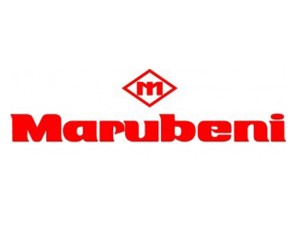
MANILA, Philippines—Japanese trading giant Marubeni is expected to finalize by September a deal to buy a 20 percent stake in water concessionaire Maynilad Water Services Inc. for about $400 million.
DMCI Holdings president Isidro Consunji told reporters on the sidelines of DMCI’s annual stockholders’ meeting on Monday that the deal with the Japanese company was about to be closed, with DMCI selling 16 percent and partner Metro Pacific Investments Corp. giving up 4 percent of economic interest.
“It’s now just a question of which (corporate) vehicle to be used,” Consunji said.
The financial closing of this transaction is expected by September, after which DMCI’s economic interest in Maynilad will be reduced to 25 percent while Metro Pacific would keep 52 percent, Consunji said.
Maynilad is poised to sell “mostly” secondary shares to Marubeni, he said.
Explaining the benefits of getting Marubeni as a third-party investor, Consunji said, “It will bring in low-cost capital with all tenor, improve human resources and improve operational efficiency for the system.”
DMCI chief finance officer Hebert Consunji confirmed a $2-billion estimated valuation of 100 percent of Maynilad. He added that DMCI would thus get around P14.2 billion in proceeds from the sale of its 16 percent in Maynilad.
This valuation for 100 percent of Maynilad also implied that Marubeni will pay around $400 million to acquire about a fifth of the water concessionaire.
The DMCI finance officer said Maynilad was expected to earn P6.6 billion in net profits this year. This suggested that Marubeni would buy into Maynilad at around 13 times the company’s expected profits for this year. In 2011, Maynilad’s core net income increased by 24.2 percent to P6.01 billion.
Fund managers said the prospective value of this transaction was already factored into current market prices of DMCI and MPCI. Shares of the two holding companies spiked in the first quarter as the market anticipated the entry of Marubeni in their utility venture.
The consortium DMCI-MPIC Water Co. is a 55-45 joint venture, which has a 92-percent stake in Maynilad, with MPIC owning the majority bloc.
Marubeni is expected to get one board representation after the transaction while DMCI and Metro Pacific will occupy two and four seats, respectively.
Asked about DMCI’s use of proceeds from the transaction, the company president said this would be invested in infrastructure projects.
One incentive for Maynilad to get Marubeni is an offer from the Japan International Cooperation Agency (JICA) to provide Maynilad with cheap long-term money—for instance, a facility with tenor of 40 years with a 10-year grace period—at an interest rate of less than 1 percent per annum. A condition to this cheap financing, however, is that a Japanese firm must own 20 percent of the enterprise.
Apart from giving Maynilad access to cheap financing from JICA, Japan’s official development arm, Marubeni is expected to bring in fresh technology to help with waste-water management initiatives.
Although the DMCI-MPIC consortium has improved operating efficiencies since taking over Maynilad from the Lopezes in 2007, it wants to boost its financial muscle especially to fast-track the reduction in non- revenue water (NRW) ratio resulting from leakage and theft. This NRW ratio has gone down from 68 percent since its takeover to 42.2 percent as of last year but this is still high relative to peer Manila Water’s comparative NRW ratio of 11.2 percent.
Maynilad covers the West Zone of Metro Manila and a large part of Cavite province with a population of over nine million. The number of billed customers rose by 11 percent to over one million at the end of 2011 from 903,682 a year earlier. Total revenues last year grew by 14.3 percent to P13.77 billion from a year before due to the combined effect of an 8.3 percent increase in billed volume and an average effective tariff increase of 5.7 percent.
For its part, Marubeni has been operating in the Philippines for the last 100 years through its wholly owned subsidiary Marubeni Philippines Corp. It has operations in domestic, import, export and offshore trade, turn-key project management, risk management, finance, logistics, build-operate-transfer endeavors, joint ventures and investments in various industries such as telecommunications, information technology, power, agriculture, transportation, construction and metals.

